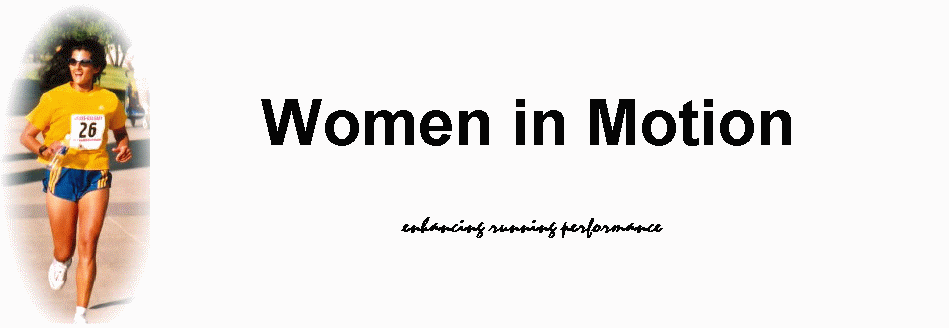| MENU |

Article: More Ways to Calculate For some time, there have been a variety of ways to help you calculate heart rate. As research continues, some new methods seeming to be a little more reliable appear. The latest in research produces two more formulas that may aid you in determining your maximum heart rate. Our suggestion is to consider all formulas for MHR and determine the range that fits your training.
The latest formulas are: 1. MHR = 208 - (0.7 x your age) 2. MHR = 205 - (0.5 x your age) Let's consider all formulas and compare results. . METHOD A. Original Basic Method: We have used 226 (for females) minus age to equal the maximum heart rate (MHR). This is the upper most level that the heart should be pushed. Let's take a female runner who is 33 years of age. Maximum Heart Rate is calculated as follows: 226 - 33 = 193. Therefore the maximum heart rate is 193 beats per minute. To calculate Target Heart Rate for runners, we take 70 to 80% of max. 70% of 193 = 135.1 80% of 193 = 154.4 For runners who use a heart rate monitor, it can be set with 135 as the lower limit and 155 as the upper limit. Heart Reserve Method:
To base your training heart rate on fitness level
you use the Heart Reserve Formula. For this you need to know your resting heart rate. This is your heart rate, before you get up in the morning. While lying in bed, place your fingers across your wrist and count your pulse for 15 seconds. Multiply this amount by four to calculate your RHR for a minute. Calculations for an 80% level using Method A can be done as follows: Training HR = (.80) (Max HR - Resting HR) + Resting HR For example a 33 year old with a resting HR = 50 beats per minute: Maximum HR = 226 - 33 (age) = 193. Training HR = (.80) (193 - 50) + 50(resting heart rate) Training HR = (.80 ) (143) + 50. Training HR = 114.4 + 50 = 164.4
METHOD B. MHR = 208 - (0.7 x your age) At 33 years of age the formula works as follows: MHR = 208 - (0.7 x 33) 208 - 23.1 =184.9 To calculate Target Heart Rate for runners, we take 70 to 80% of max. 70% of 184.9 = 129.4 80% of 184.9 = 147.9 For runners who use a heart rate monitor, it can be set with 129 as the lower limit and 148 as the upper limit.
METHOD C. MHR = 205 - (0.5 x your age) At 33 years of age the formula works as follows: MHR = 205 - (0.5 x 33) 205 - 16.5 = 188.5 To calculate Target Heart Rate for runners, we take 70 to 80% of max. 70% of 188.5 = 131.9 80% of 188.5 = 150.8 For runners who use a heart rate monitor, it can be set with 132 as the lower limit and 151 as the upper limit.
SUMMARY: All formulas can provide a 33 year old runner with a range of maximum heart rate (185 to 193) in which to plan training. A 33 year old runner can plan on setting as a lower training limit (70%) 129 to 135. A 33 year old runner can plan on setting as an upper training limit (80%) 148 to 155. We will leave the Heart Reserve Method to you to calculate if you wish. Remember when you take your heart rate, there are factors that may cause the rate to fluctuate so measure each day for a week and take the average. Your resting heart rate is also an example of your overall fitness. You can definitely increase your aerobic endurance and lose weight at the same time. Total calories burned is the key to weight loss and by training at the higher end (80%) of your training zone you achieve two important goals. You challenge your aerobic system which improves endurance and you burn up more calories. Gord - Women in Motion Women in Motion
|

